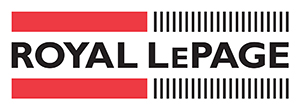Ron Baldwin
Sales Representative
~Making your journey easy~
‹

For Sellers
Pricing your property right
If you price your property too low, it may sell quickly, but you’ll lose out on money. If you price it too high, it may not sell at all. Your agent can help you figure out the best asking price for your home.
The benefits of the right price
A well-priced property may generate competing offers, which will drive up the final price. Other real estate professionals will be enthusiastic about presenting your property to their buyers. Your home will sell faster because it is exposed to more qualified buyers.
Listen to the market
As part of your pricing strategy, your agent will put together a comparative market analysis, which is a good indicator of what today’s buyers are willing to pay. It compares the market activity of homes similar to yours in your neighbourhood:
- Homes that have recently sold represent what buyers are willing to pay.
- Homes currently listed for sale represent the price sellers hope to obtain.
- Listings that have expired are generally overpriced or have been poorly marketed.
Don’t overprice your home
Some sellers believe that if they price their home high initially, they can lower it later. Instead of making you more money, this strategy could end up hurting you.
-
Early activity is key. As soon as a home comes on the market, agents and potential buyers sit up and take notice. If it’s overpriced, interested parties will quickly lose interest. By the time the price drops, the majority of buyers are lost. When a home has been for sale too long, buyers will be wary and may reject the property.
-
You’ll miss the right buyer. You may think that interested buyers can always make an offer, but if your home is overpriced, potential buyers looking in a lower price range will never see it. And those who can afford a home at your asking price will soon recognize that they can get a better value elsewhere.
- You could run out of time. You may end up having to drop your price below market value if your home doesn’t sell initially. Price it right the first time, and you won’t end up having to sell it for less than it’s worth.
The elements of an offer
Here’s a quick reference to everything you need to know about accepting on offer on your home.
1. Price
Depends on the market and the buyers, but generally, the price offered is different from the asking price.
2. Deposit
Shows the buyer’s good faith and will be applied against the purchase price of the home when the sale closes.
3. TermsIncludes the total price the buyer is offering as well as the financing details. The buyer may be arranging his/her own financing or may ask to assume your existing mortgage if you have an attractive rate.
4. Conditions
These might include "subject to home inspection," "subject to the buyer obtaining financing," or "subject to the sale of the purchaser’s property."
5. Inclusions and exclusions
These may include appliances and certain fixtures or decorative items, such as window coverings or light fixtures.
6. Closing or possession date
Generally, the day the title of the property is transferred to the buyer and funds are received by the seller, unless otherwise specified (except in Manitoba and Quebec).
Renovating for resale
Renovations don’t have to be expensive or extensive to offer you a good rate of return. In fact, a quick coat of paint can go a long way to boosting your selling price. Just make sure your new décor is tasteful, with shades of white and tame versions of popular colours.
The kitchen and bathroom are your best bets for renovation with the highest payback. Take a look at these average rates of return for home upgrades:
- Interior painting and décor - 73%
- Kitchen renovation - 72%
- Bathroom renovation - 68%
- Exterior paint - 65%
- Flooring upgrades - 62%
- Window/door replacement - 57%
- Main floor family room addition - 51%
- Fireplace addition - 50%
- Basement renovation - 49%
- Furnace/heating system replacement - 48%
- New lighting - 84%
As an expert on home sales trends in your neighbourhood, your Royal LePage Sales Professional can suggest which areas of your home could benefit from renovation and increase its value.
Preparing your home for an inspection
If you’re selling your home, be prepared for a visit from a home inspector, who will be checking out the property on behalf of possible purchasers. Take a look through your home using these steps, and repair any problems to ensure that your inspection is a success.
1. Make sure the structure is sound. Check to see if any renovations have damaged the structure. Look for termite damage. Ensure that "settling" hasn’t caused damage to the foundation or support beams and joists.
2. Check if electrical and wiring systems are safe. Loose wires or incorrectly installed or wired receptacles, switches or electrical box problems are hazardous and should be fixed. All homes should have a minimum of 100 amp service.
3. Look for leaks. Water can leak into unexpected places, causing extensive damage over time. Examine the underside of sinks and dishwashers, along ceilings, on floors or along basement walls. Plumbing fixtures, water-using appliances, drain pipes, water supply inlets and outlets, basements and roofs can all be causes and sources of water damage.
4. Resolve safety issues. Make sure windows open easily and lock securely, and entrances/exits can be securely locked. Correct hazards such as hidden curbs, loose railings and stairs, uncapped wells, etc.
5. Check plumbing. Faucets should run easily and shut off completely, bathtubs should be properly caulked and grouted, toilets should be bolted down securely, drains should be clog free, and the water heater should be in good working order.
6. Make sure your heating and cooling systems work. Make sure they are up to date, clean, in good working condition and have clean filters. Check refrigerant in air conditioning units.
7. Have a friend take a look. A general, unbiased overview of your home by a neighbour or friend may reveal issues you might have overlooked.
Getting your home ready to show
If you’re planning an open house, or are expecting buyers to be looking at your home, make sure their first impression is a good one. Here are few hints for making your house look great to potential buyers:
Exterior
- House in good repair
- House number easy to read
- Eavestroughs, down spouts and soffits in good repair
- Garage/car port clean and tidy
- Litter picked up
- Cracked or broken window panes replaced
- Lawns and hedges cut and trimmed, garden weeded and edged
- Walks shovelled and salted
- Boot tray inside front door
- Doorbell and door hardware in good repair
- Porch and foyer clean and tidy
Interior
- Chipped plaster and paint touched up or replaced
- Doors and cupboards properly closed
- Leaky taps and toilets repaired
- Burned out light bulbs replaced
- Squeaky doors oiled
- Mirrors, fixtures and taps cleaned and polished
- Seals around tubs and basins in good repair
- Floors cleaned, garbage containers empty
- Inside of closets and cupboards neat and tidy
- Appliances cleaned
- Countertops neat and polished
- All lights turned on
- Air conditioner turned on in warm weather
- Fresh air in house
- Fireplace lit in cooler weather
- Halls and stairs cleaned
- Drapes opened during daylight
- Carpets freshly vacuumed
- Fresh flowers in various rooms
- Jewelry and valuables locked safely away or taken with you
- Valuable property, such as art, vases and figurines out of reach, out of sight or locked away
- Pets absent, where possible, or contained during the showing, and litter boxes clean
Signing a Listing Agreement
The first formal step in selling your property is entering into a Listing Agreement with your Royal LePage agent. The Listing Agreement is a contract in which Royal LePage commits to actively market your home for a specified period of time. It also commits you to a pre-established marketing fee that is to be paid upon the successful closing of the sale.
As part of the Agreement, your agent may require the following documents:
Plan of Survey or Location Certificate. A survey of your property which outlines the lot size and location of buildings as well as details of encroachments from neighbouring properties. This may be required in certain areas to complete the sale of your home. Your legal professional may recommend a survey, especially if significant changes have been made to your property.
Property tax receipts. Most Listing Agreements require that current annual property tax assessments be shown.
Mortgage verification. Few homeowners know the exact balance of their mortgage as it is paid down. You will be asked to authorize your mortgage lender to provide the figures required.
Deed or title search. This document is a legal description of your property and the proof that you own it.
Other documentation. In some instances, it may help the sale of your property if you can provide prospective buyers with information on such items as annual heating, electrical, and water expenses, as well as any recent home improvement costs. Some provinces require that you sign a property condition disclosure statement.
Understanding market conditions
The real estate market is always changing, and it helps to understand how market conditions can affect your position as a seller. Your agent can provide you with info on current conditions and explain their impact on you.
Buyers’ market
The supply of homes on the market exceeds demand.
Characteristics
- High inventory of homes
- Few buyers compared to availability
- Homes on the market longer
- Prices tend to drop
Implications
- More time to look for a home
- More negotiating leverage for buyers
Sellers’ market
The number of buyers wanting homes exceeds the supply of homes on the market.
Characteristics
- Smaller inventory of homes
- Many buyers
- Homes sell quickly
- Prices usually increase
Implications
- Buyers may have to pay more
- Buyers must make decisions quickly
- Conditional offers may be rejected
Balanced market
The number of homes on the market is equal to the number of buyers.
Characteristics
- Sellers accept reasonable offers
- Homes sell within an acceptable time period
- Prices generally stable
Implications
- More relaxed atmosphere
- Reasonable number of homes to choose from
The trademarks MLS®, Multiple Listing Service® and the associated logos are owned by CREA and identify the quality of services provided by real estate professionals who are members of CREA.
REALTOR® contact information provided to facilitate inquiries from consumers interested in Real Estate services. Please do not contact the website owner with unsolicited commercial offers.
Copyright© 2025 Jumptools® Inc. Real Estate Websites for Agents and Brokers

